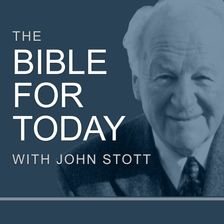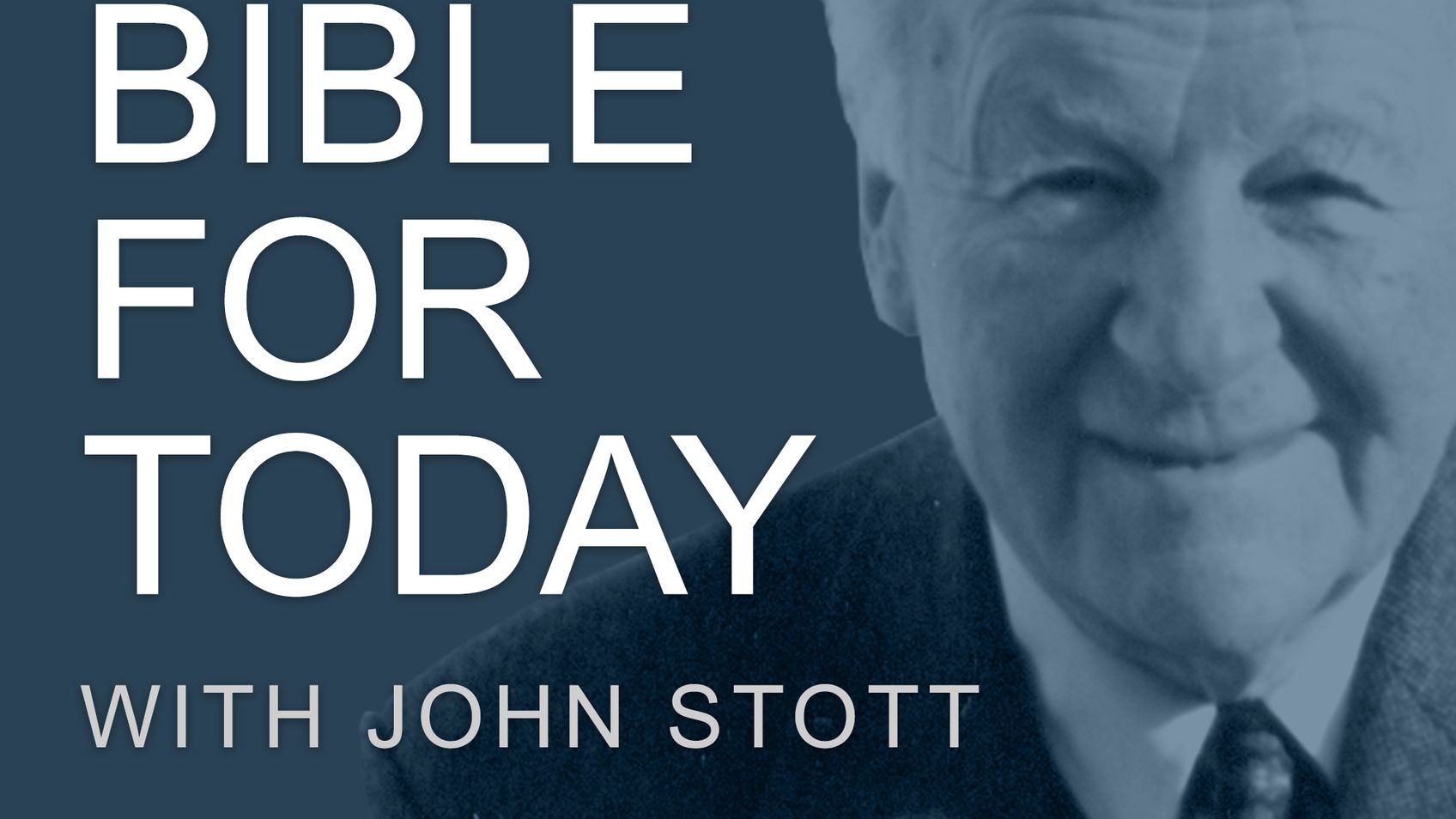The Greatest Invitation Ever Made - Part 1
October 10, 2021

The Bible for Today with John StottPremier
John Stott shows us how the heavy burdens we carry in life can be taken from us when we trust Jesus Christ. John explains that in its place we take the light burden of obedience to Christ as our Lord.
More From The Bible for Today with John Stott

The Greatest Invitation Ever Made - Part 2
The Bible for Today with John Stott
October 17, 2021
John Stott outlines from whom the invitation is sent; to whom it is addressed; what Jesus offers and what He asks from us.

Christ Will Come Again - Part 1
The Bible for Today with John Stott
October 24, 2021
John Stott uses Scripture to dismantle the objections often raised against the return of Jesus. John shows why Christ's return is the only event Chris

Christ Will Come Again - Part 2
The Bible for Today with John Stott
October 31, 2021
John Stott describes the certainty of Christ's return even though its timing cannot be predicted. He warns of the need to be ready for when Christ ret

Growing In The Prayer Life - Part 2
The Bible for Today with John Stott
October 3, 2021
John Stott uses the 'Lord's prayer' as a template for our prayer life showing that we can only bring our prayers to God as our Father when we have bec

Growing In The Prayer Life - Part 1
The Bible for Today with John Stott
September 26, 2021
John Stott explains how praying is the Christian's greatest privilege. He warns us from Scripture how not to pray and encourages us as to how we shoul

The Cause of His Death - Part 2
The Bible for Today with John Stott
September 19, 2021
John Stott takes us to the Last Supper as Jesus explains to His disciples the significance of the bread and wine. John explains what Jesus meant when
More on OpenTheo

The Making of the American Mind with Matthew Spalding
Life and Books and Everything
February 2, 2026
The United States is unique in how much attention it pays to its founding, its founders, and its founding documents. Arguably, the most famous and mos

Are Demon Possessions and Exorcisms in the New Testament Literal?
#STRask
December 11, 2025
Questions about whether references to demon possessions and exorcisms in the New Testament are literal, how to talk to young children about ghosts, an

An Invitation to the 2026 Coram Deo Pastors Conference
Life and Books and Everything
February 18, 2026
"I love being a pastor, and I love pastors, which is why I hope you will consider joining us at the Coram Deo Pastors Conference in 2026." —Kevin DeYo

What About Those Who Never Heard the Name of Jesus?
#STRask
December 22, 2025
Questions about what will happen to those who never heard of Jesus or were brought up in a different faith, whether there’s biblical warrant to think

Does Open-Mindedness Require Studying Other Religions Before Becoming a Christian?
#STRask
February 9, 2026
Questions about the claim that if Christians really want to be open-minded, they need to read and study other religions before committing to Christian

Is 1 Corinthians 12:3 a Black-and-White Tool for Discernment?
#STRask
October 27, 2025
Questions about whether the claim in 1 Corinthians that “no one can say ‘Jesus is Lord’ except in the Holy Spirit” is a black-and-white tool for disce

Does God Really Need a “Pound of Flesh” to Forgive Sins?
#STRask
January 12, 2026
Questions about how to answer the challenge that God doesn’t need a “pound of flesh” to forgive sins but can simply forgive, and whether the claim in

Are You Accursed If You Tithe?
#STRask
December 15, 2025
Questions about whether anyone who tithes is not a Christian and is accursed since Paul says that if you obey one part of the Mosaic Law you’re obliga

Is It a Sin to Feel Let Down by God?
#STRask
November 6, 2025
Questions about whether it’s a sin to feel let down by God and whether it would be easier to have a personal relationship with a rock than with a God

Could the Writers of Scripture Have Been Influenced by Their Fallen Nature?
#STRask
October 23, 2025
Questions about whether or not it’s reasonable to worry that some of our current doctrines were influenced by the fallen nature of the apostles, and h

What Are Some Good Ways to Start a Conversation About God with Family Members?
#STRask
October 30, 2025
Questions about how to start a conversation about God with non-Christian family members, how to keep from becoming emotional when discussing faith iss

How Should I Respond to an LGBTQ Person Who Says He Feels Good About Who He Is?
#STRask
March 2, 2026
Questions about responding to an LGBTQ person who says he feels good about who he is, and whether—since we all have sin in our life we don’t consider

Why Would Any Rational Person Have to Use Any Religious Book?
#STRask
December 8, 2025
Questions about why any rational person would have to use any religious book, whether apologetics would be redundant if there were actually a good, un

The Heidelberg Catechism with R. Scott Clark
Life and Books and Everything
November 3, 2025
You may not think you need 1,000 pages on the Heidelberg Catechism, but you do! R. Scott Clark, professor at Westminster Seminary California, has writ

What Tools of Reasoning Help You Know What’s True, Right, and Good?
#STRask
December 4, 2025
Question about what tools of reasoning help us determine whether something is true or false, right or wrong, good or bad before bringing Scripture int
